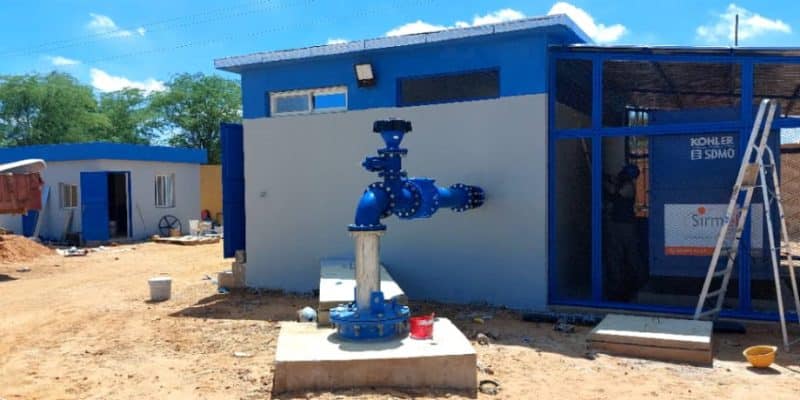In Senegal, the Senegalese National Water Company (SONES) is commissioning a new system to transfer water from the Ndiock-Sall wellfield to the city of Saint-Louis. This operation will improve the daily lives of the people of Saint-Louis, who have had to contend with water shortages for several years.
The people of Saint-Louis will now have access to water from the public network 24 hours a day. This is the promise made by Sen’eau following the commissioning of the water transfer system from the Ndiock-Sall wellfield, 50 km from Saint-Louis. The project was initiated by the Senegalese National Water Company (SONES) after several years of water shortages. Water from the public network was available six hours a day at very low pressure.
Sones therefore came to the rescue of the people of Saint-Louis by equipping the Ndiock-Sall wellfield with two new boreholes, each with a capacity of 200 m3 per hour. The project, which was recently completed, also involved laying 50 km of pipes to carry the water pumped from the groundwater to the Leybar water tower at the entrance to the town. The work, which began in March 2023, took just over 4 months to complete.
Commissioning of a new plant in 2024
“The commissioning of these new facilities, combined with the flow management plan deployed by the technical teams (production and distribution) of the regional department, have enabled us to optimise the additional volumes to the delight of the population”, says Sen’eau, the company that provides the public water service in Senegalese towns and cities. The new infrastructure will boost water supplies in the districts of Pikine, Goxu Mbacc, Langue de barbarie, Sanar, Boudiouck, Diougop, Nguallèle, Bango, HLM, Guinaw Rails, etc.
Read also- SENEGAL: Touba is looking for €262m for drinking water and sanitation
The water transfer capacity from the Ndiock-Bell wellfield is 4,000 m3 per day, “i.e. 21% of installed production, and is expected to increase in October with the completion of the second borehole and work to densify the distribution network. The supply of drinking water to Saint-Louis will be secure in the short term”, promises Sen’eau.
According to Sen’eau, the drinking water supply to this city in north-west Senegal should be further secured with the construction of the second 15,000 m3 per day Khor drinking water plant. Last June, Alpha Sall, the territorial director of Sen’eau, told the Agence de presse sénégalaise (APS) that the new plant should be operational in the first quarter of 2024, increasing the production capacity of the city of Saint-Louis, estimated at 18,000 m3 per day for a population of over one million.
Jean Marie Takouleu






